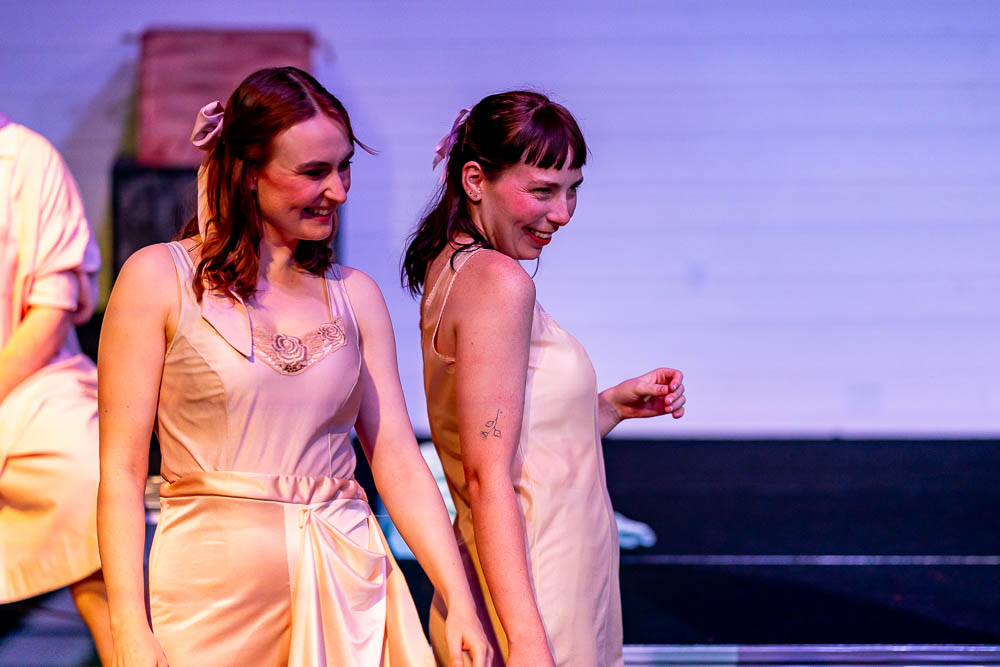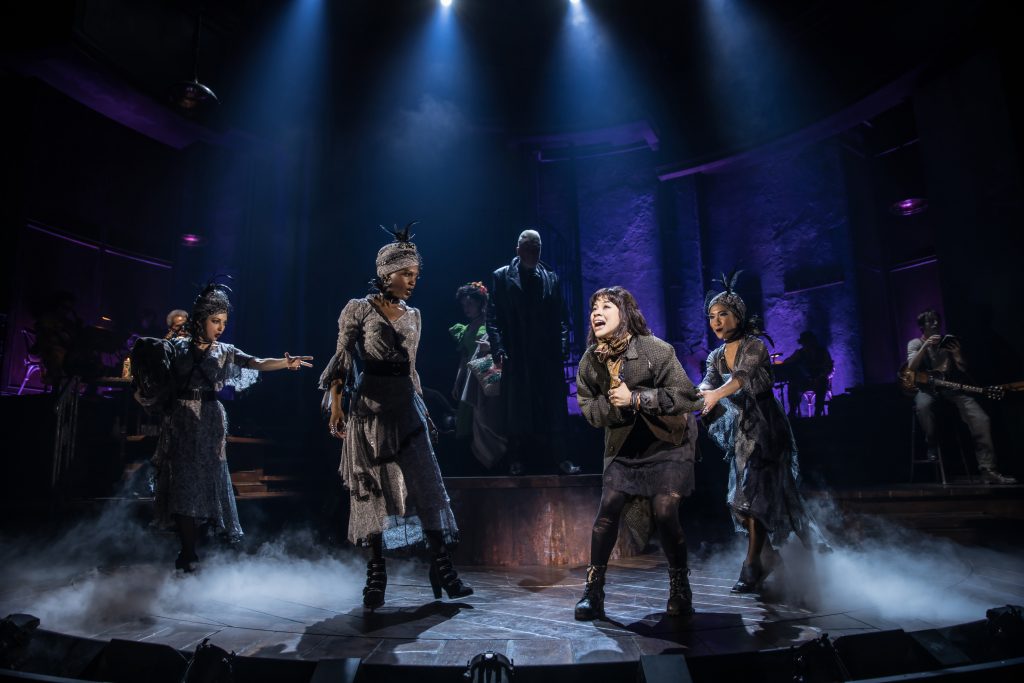
‘The Penelopiad’ // Queensland Shakespeare Ensemble
‘The Penelopiad’ was ethereal.
Odysseus‘s wife. Telemachus‘s mother. Daughter of Spartan King Icarius and the naiad Periboea. Best known for her fidelity to her husband for whom she waited on the tiny island of Ithaca for twenty years, and for her famed trick of holding off would-be suitors by promising to choose one upon the completion of a woven shroud, which she would weave diligently all day long only to undo her work every night. Don’t know her name? Don’t feel bad. It takes Homer until book 2 of The Odyssey to refer to her as anything more than the aforementioned. She is, of course, Penelope and she has been held up for millennia as the paragon of feminine virtue. Or, as Penelope herself says, ‘as a stick to beat other women with’. When it comes to standing by your man, Tammy Wynette ain’t got nothing on Penelope.
Yet for all that she’s the heroine of the OG swords and sandals epic, Penelope’s story has received surprisingly little airtime. Apparently it never occurred to Homer or his contemporaries that she may not have enjoyed patiently waiting for a solid two decades for Odysseus to stop faffing around in Troy, oiling himself up and building oversized group costumes, and return home. Given even less literary consideration than the woman herself are Penelope’s faithful maids; the 12 young women who were her constant companions, co-conspirators, and ultimately her sacrificial lambs.
In 2005 Penelope and the maids were finally given voice in Margaret Atwood’s novella ‘The Penelopiad’ in which Penelope, now dead, reminisces on her life and her relationships. Constantly interrupting the narrative are the Greek chorus; the very same 12 maids who offer their own views on those same events. Adapted into a play in 2007 ‘The Penelopiad’, performed by the Queensland Shakespeare Ensemble, comes for the first time to Brisbane.
Staged in the intimate surrounds of the Pip Theatre and directed by Rebecca Murphy, Liliana Macarone’s Penelope owns the space from the moment she enters. This is her story dammit and now that she is dead she “knows everything”. But the Greek afterlife is a lot less forgiving than any Christian heaven, and Penelope’s recount is broken almost immediately by the chorus of the murdered maids who enter laughing and singing a rope-jumping song: “we are the maids, the ones you killed, the ones you failed”. The contrast between their beautiful singing, the gentle costuming, and the searing words was uncomfortable, eerie, and an early flag that this story was bigger than any one individual.
It’s a rare sight on modern stages to see a clear depiction of a Greek chorus in the authentic singing, dancing, storytelling form; even modern adaptations of canonical Ancient Greek texts rarely have more than two or three actors performing the role. Yet this production of ‘The Penelopiad’ reminds us why the ancient Greeks saw the chorus as the main event. Their ability to act as a single entity made up of distinct individuals, to tell one unified story while highlighting the personal suffering of each member, is a theatrical concept rarely used. When done like this it’s breathtakingly effective.
While the original production was an all-female cast, the multi-gendered casting by QLD Shakespeare Ensemble not only establishes a more believable power dynamic between Penelope and the various men who rule her life but also added another perhaps unintentional layer to the story by avoiding the pitfall of an all-too-obvious treatise on gendered violence. Instead of just 12 beautiful maids who were struck down in their prime, the echoes of the billions of nameless, faceless people who have been carelessly trampled and discarded in the pursuits of the powerful could be heard in every line. Penelope’s hands, and the hands of the obnoxious Eurycleia, are just as bloody as those who do the actual killing. As Austin Powers once said, ‘no one ever thinks about the family of a henchman’.
Although not a musical, the backbone of production was the music, composed and directed by Rob Pensalfini. Seamlessly moving between ethereal, otherworldly, and ghostly to ribald and jocular it consistently struck just the right note (pun intended!) throughout the show, with the notable exception of a closing number reminiscent of a 70s country number that was jarring for its sudden tonal shift. I mention it only in the interests of a rounded review and it says something that the only time the mood was broken was in the final minute of the show.
Whether you’re a fan of Homer (the poet, not Simpson), Atwood, or just want to see what a Greek chorus can do when used to its full and original potential, make sure that you take the time to see ‘The Penelopiad’.
‘The Penelopiad’ performs until September 10 at PIP Theatre, Milton For more information visit their website.






Great review. Wish I lived in Queensland.
Will watch oout for this in Western Australia.